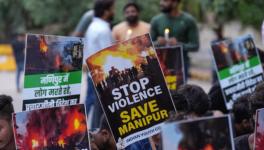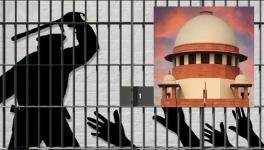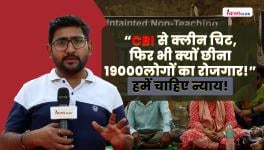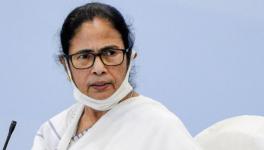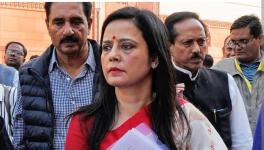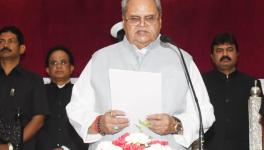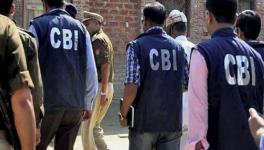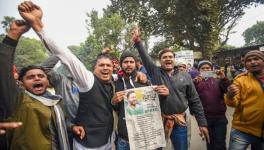ICICI-Videocon Scam: How The Bold and Beautiful Help Each Other
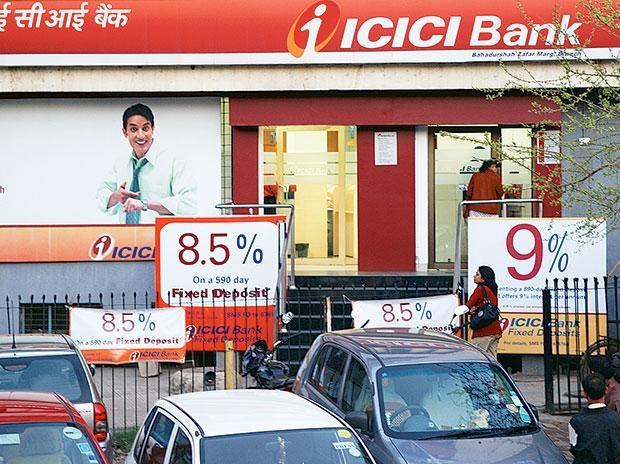
Image Courtesy: Business Standard
The CBI has commenced a preliminary enquiry into the business transactions of Deepak Kochhar, husband of ICICI Bank CEO and MD Chanda Kochhar. This enquiry comes soon after details of alleged fraud came to light involving the Kocchars and Venugopal Dhoot of the Videocon Group. The ‘financial misconduct’ came to light when a shareholder in ICICI Bank and Videocon Group, Avind Gupta blew the whistle on a series of transactions. He had first written to the Prime Minister on the issue in 2016, the second letter sent in 2017 has been reproduced by the National Herald.
In his letter Gupta has alleged that the net profits of ICICI Bank have been declining, and that the bank has seen its bad loans increasing. The percentage of the bank’s NPAs almost doubled within the span of a year. He also made a reference to his earlier letter where he mentioned the case of Chanda Kochhar’s relationship with the Videocon Group which owes various banks around Rs.43,000 crore in total. He alleged that Chanda Kochhar enabled Videocon Group to avail of loans to invest in NuPower, which was a joint venture involving both Deepak Kocchar and Venugopal Dhoot.
According to The Indian Express, the chain of events regarding the connection with Videocon Group and ICICI Bank began in 2008. In December 2008 Venugopal Dhoot and Deepak Kochhar set up NuPower Renewables Pvt. Ltd. (NRPL). Dhoot held 50% of the shares along with his family members and associates. Deepak Kochhar held the remaining 50% stake along with Pacific Capital, a company owned by his father and Chanda Kochhar’s sister in law. In January 2009 Dhoot resigned from his position as Director of NRPL and transferred 24,999 shares to Deepak Kochhar for a price of Rs. 2.5 lakh. In March 2010, Supreme Energy Private Limited a company in which Dhoot owned 99.9% of the shares advanced a loan of Rs. 64 crore as fully convertible debentures to NRPL. A fully convertible debenture is a medium to long term debt instrument. Investing though fully convertible debentures means that if the loan is defaulted, the lender will in lieu of payment receive shares in the company. If the company goes bankrupt, the debenture holder will only be able to recover the amount after the secured creditors have been paid.
After the Rs. 64 crores had been invested in NRPL, there was a complex transfer of shares between Venugopal Dhoot, Deepak Kochhar, Pacific Capital, and Supreme Energy Private Limited. The outcome was that Supreme Energy Private Limited ended up holding 94.99% of the shares in NRPL. Deepak Kochhar on the other hand retained a 4.99% stake in NRPL. Later in November 2010, Deepak Kochhar transferred his entire stake in Supreme Energy to an associate, Mahesh Chandra Punglia. Between September 2012 and April 2013, Punglia transferred the entire holding to Pinnacle Energy Trust for Rs. 9 lakh. Dhoot was a managing trustee of Pinnacle Energy.
The question of conflict of interest arose in 2012 when ICICI Bank authorised a loan of Rs. 3,250 crore to Videocon. Chanda Kochhar was on the committee that sanctioned the loan. At a first glance this should not be that big a concern, however, at the time Videocon was already debt ridden. The other reason for a conflict of interest is the investments made by companies controlled by Venugopal Dhoot of Videocon Group to Chanda Kochhar’s husband’s company, NRPL. Videocon has been unable to repay the entire loan, the remaining amount to be paid is Rs. 2,810 crore. Though this makes up only around 6.5% of Videocon’s outstanding debt, in 2017 ICICI declared the Videocon account an NPA.
Whether there really was a conflict of interest in the deal must be left to the CBI and SEBI to determine. However, what should raise eyebrows is that NRPL had a debt of Rs. 64 crore owed to Supreme Energy. After which Supreme Energy acquired a stake of 94.99% in NRPL. With Dhoot owning 99.9% of the shares in Supreme Energy he effectively acquired NRPL. His stake in Supreme Energy was then transferred to Punglia, meaning that both NRPL and Supreme Energy were transferred to Punglia. The stake was then subsequently transferred to a Trust of which he was a managing trustee. Hence, he reacquired both NRPL and Supreme Energy all for Rs. 9 lakhs – the total authorised and paid up capital of Supreme Energy.
Get the latest reports & analysis with people's perspective on Protests, movements & deep analytical videos, discussions of the current affairs in your Telegram app. Subscribe to NewsClick's Telegram channel & get Real-Time updates on stories, as they get published on our website.










